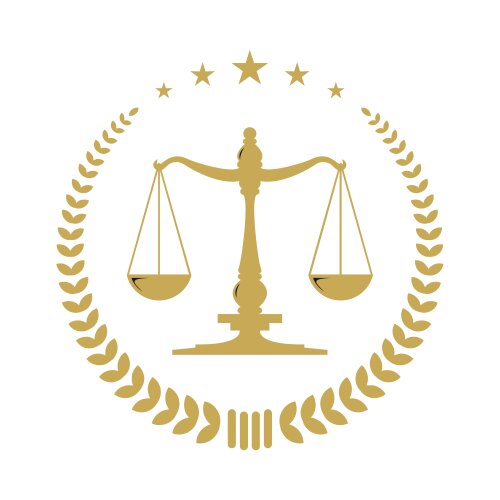Best Faith-Based Law Lawyers in Abbottabad
Share your needs with us, get contacted by law firms.
Free. Takes 2 min.
List of the best lawyers in Abbottabad, Pakistan
About Faith-Based Law in Abbottabad, Pakistan
Faith-Based Law, also known as Shariah Law, is an integral part of the legal framework in Pakistan, including Abbottabad. This body of law draws its principles from the Quran and Sunnah, impacting various aspects of personal and societal conduct, especially within the Muslim community. Faith-Based Law frequently intersects with family law, inheritance issues, and personal ethics. While the legal system of Pakistan is a mix of common law and Islamic law, Faith-Based Law plays a significant role in personal status cases such as marriage, divorce, and inheritance.
Why You May Need a Lawyer
Legal matters where Faith-Based Law comes into play can be complex and require specialized knowledge. Common situations where you might require legal assistance include:
- Marriage and Divorce Disputes: Guidance on the laws governing marriage contracts, marital rights, and divorce procedures.
- Inheritance and Succession: Assistance in understanding the distribution of assets according to Islamic heirship principles.
- Business Ethics: Advising on transactions and contracts that comply with Islamic economic principles.
- Religious Rights: Protecting or asserting rights related to religious practices and obligations.
- Resolution of Disputes: Mediation or arbitration in faith-based conflicts.
Local Laws Overview
In Abbottabad, as in the rest of Pakistan, Faith-Based Law significantly influences family law and personal status matters. Some of the key aspects include:
- Marriage: Legal requirements for a Nikah (Islamic marriage contract), including consent and witness requirements.
- Divorce: Procedure for Talaq (Islamic divorce) and the rights of both parties post-divorce.
- Inheritance: Distribution of assets as per Islamic inheritance laws, prioritizing specific familial relationships.
- Charitable Giving (Zakat): Regulations surrounding obligatory alms-giving as per Shariah.
- Business Transactions: Norms governing Islamic finance practices to ensure non-interest-based financial dealings.
Frequently Asked Questions
What is the role of Shariah law in the Pakistani legal system?
Shariah law governs personal status matters like marriage, divorce, and inheritance for Muslims, while Pakistan's legal system also incorporates civil and criminal codes for broader applications.
How are marriages conducted under Faith-Based Law?
Marriages in Islamic law require mutual consent from both parties, the presence of witnesses, and acceptance of a dower (mahr). It's finalized with a Nikah ceremony.
What are the rights of women in divorce under Shariah law?
Women have specific rights regarding financial support and custody of children. They can also initiate divorce through Khula, subject to a return of the mahr.
How is inheritance divided under Faith-Based Law?
Islamic laws of inheritance prescribe specific shares for heirs, with primary beneficiaries being the deceased’s children, spouse, and parents, among others.
What are Waqf properties and their relevance?
Waqf refers to donations made for charitable or religious purposes. Properties designated as Waqf are crucial in managing charitable activities in the community.
Can non-Muslims consult a Shariah lawyer in Abbottabad?
Yes, non-Muslims may seek advice on matters that intersect with Islamic communities or businesses, particularly in cultural or commercial interactions.
How does Faith-Based Law address child custody?
Islamic law prioritizes the biological mother for custody until the child reaches a certain age unless other considerations emerge in legal proceedings.
What constitutes Islamic business ethics under Faith-Based Law?
Islamic business ethics prohibit interest (riba) and emphasize transparency, fairness, and ethical dealings in business transactions.
What legal procedures exist for handling Faith-Based disputes?
Islamic laws encourage mediation and arbitration for resolving disputes to reach amicable solutions aligned with Islamic principles.
What is the impact of Faith-Based Law on modern banking in Abbottabad?
Islamic or Shariah banking is practiced widely, ensuring financial services comply with non-interest-based frameworks.
Additional Resources
Individuals seeking legal advice on Faith-Based Law in Abbottabad may consider reaching out to the following resources:
- Pakistan Bar Council for professional legal representation.
- Local Islamic Centers and Mosques for guidance on religious aspects.
- Governmental bodies such as the Federal Shariat Court for judicial decisions based on Shariah.
- Non-Governmental Organizations offering free or low-cost legal aid services.
Next Steps
If you need legal assistance in Faith-Based Law, begin by identifying your specific legal needs. Consult a qualified lawyer specializing in Faith-Based Law and ensure you have all relevant documents and details organized for a consultation. Contact local bar associations for referrals if necessary. Additionally, consider discussing initial concerns with knowledgeable community leaders who can offer insight or recommend reliable legal practitioners.
Lawzana helps you find the best lawyers and law firms in Abbottabad through a curated and pre-screened list of qualified legal professionals. Our platform offers rankings and detailed profiles of attorneys and law firms, allowing you to compare based on practice areas, including Faith-Based Law, experience, and client feedback.
Each profile includes a description of the firm's areas of practice, client reviews, team members and partners, year of establishment, spoken languages, office locations, contact information, social media presence, and any published articles or resources. Most firms on our platform speak English and are experienced in both local and international legal matters.
Get a quote from top-rated law firms in Abbottabad, Pakistan — quickly, securely, and without unnecessary hassle.
Disclaimer:
The information provided on this page is for general informational purposes only and does not constitute legal advice. While we strive to ensure the accuracy and relevance of the content, legal information may change over time, and interpretations of the law can vary. You should always consult with a qualified legal professional for advice specific to your situation.
We disclaim all liability for actions taken or not taken based on the content of this page. If you believe any information is incorrect or outdated, please contact us, and we will review and update it where appropriate.








